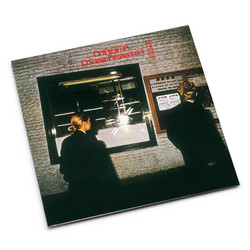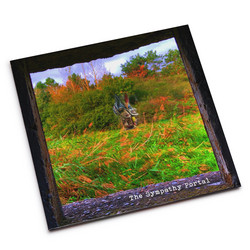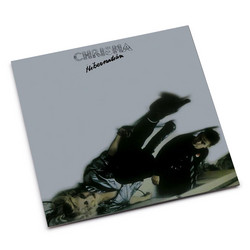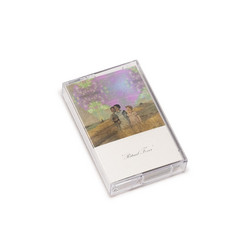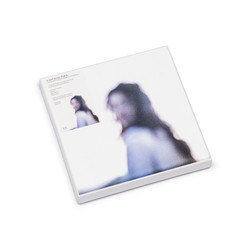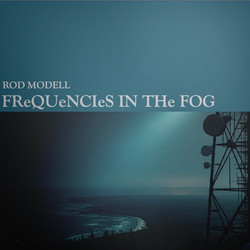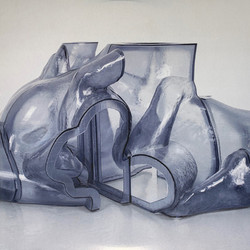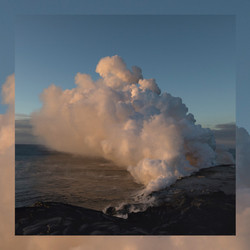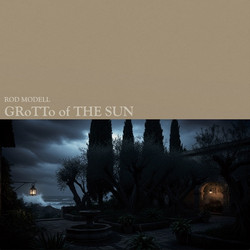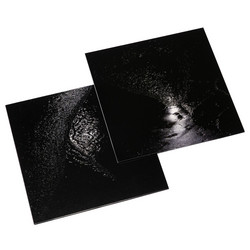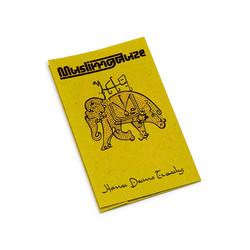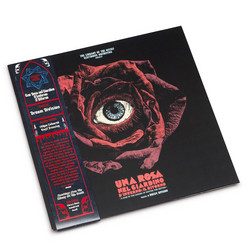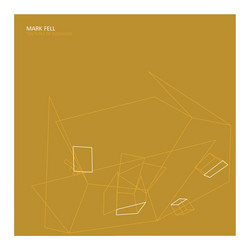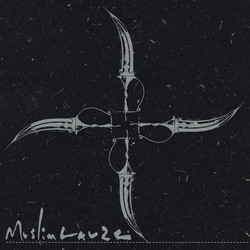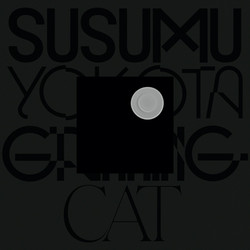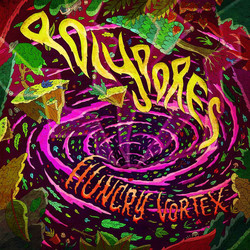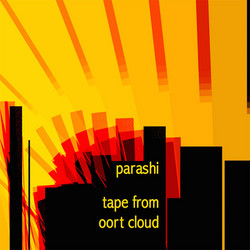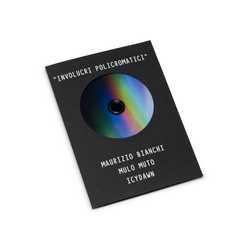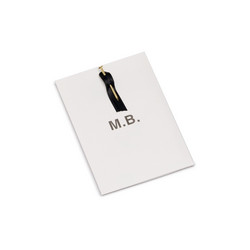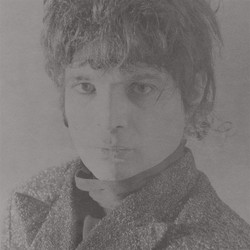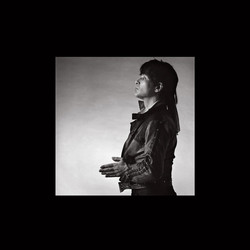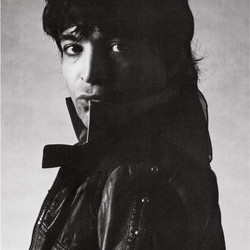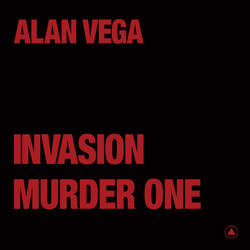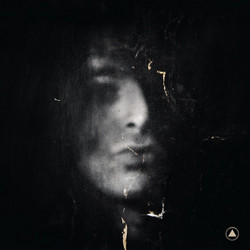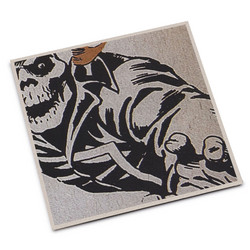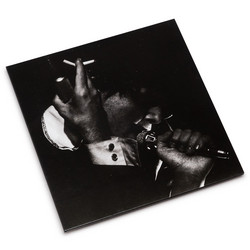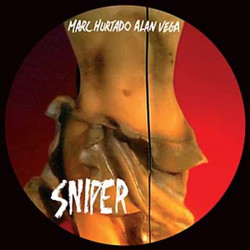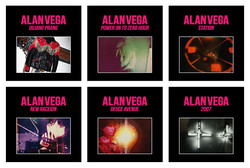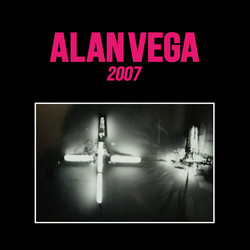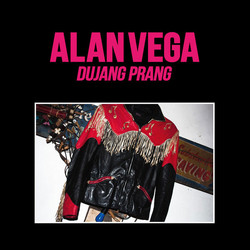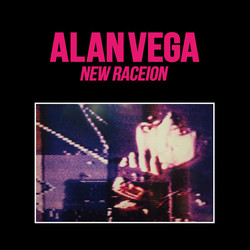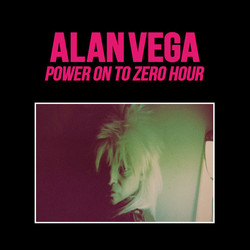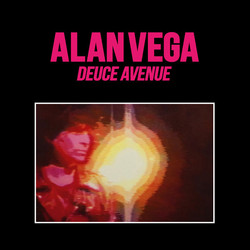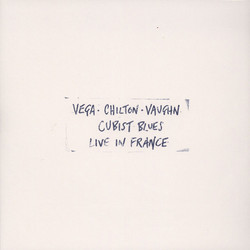**1.000 copies, 2019 stock** Born in Brooklyn, Alan Vega was reared on the rock'n'roll sound of Elvis Presley and Roy Orbison, but originally struck out on a career as a visual artist and light sculptor, making pieces out of electronic debris. Seeing Iggy Pop fronting the Stooges at the New York State Pavilion in 1969 was an epiphany for him: "It showed me you didn't have to do static artworks, you could create situations. That show was the first time in my life when the audience and the stage merged into one." It was that eradication of barriers between the two that Vega took to heart.When he met and befriended Martin Reverby, the two began experimenting with music and formed the band Suicide. Their first two albums, 1977's Suicide and their 1980 follow-up, remain two of the era's greatest milestones, beacons for others seeking to transform their worlds with sound. Even during the group's hiatus through the 1980s, Vega continued to pursue his singular vision across an individualistic solo output. From his 1980 self-titled debut and rockabilly-infused albums like Saturn Strip, through bracing albums like Power On To Zero Hour and It, Vega forged his own singular path.For all the darkness and despair that encompasses this moment in our world - and despite his work being depicted as bleak and nihilistic - for Vega there was always a sense of hope and a place for dreams to become reality: "People have always told me that my music is angry. To me, it was always just an energy. It was the way I perceived the world. The key Suicide song was Dream Baby Dream, which was about the need to keep our dreams alive. I knew back then that something poisonous was encroaching on our lives, on all our freedoms." He fought to his very last breath for that freedom.
"On Station’s GunGodGame, Alan Vega sounds like Jack Kerouac on the eve of drinking himself to death, both in sentiment and poetic cadence. The “humiliations” and attempts at “trying to bring back what’s not there” haunt him. But Alan Vega has never given up. His mission is to rekindle love and dreams and rail against authority’s disdain for both. 2007’s Station, filled with several successful stabs, is proof that he won’t quit until he’s gone, and even then his legacy will remain. An audacious human being, he’s felt comfortable presiding over both literal and musical riots, contributing to punk, industrial, and electronic music, as well as rebellion and literature in the process. It’s a wonder and a privilege that he’s still around.
Ironically, though, Vega’s potent living legacy can sometimes work against him. Still putting out records and performing live with Suicide partner Martin Rev, he correctly views himself as a contemporary artist. But his current output will always and immediately be compared against the early Suicide recordings. Given the immensity of a Ghost Rider or Frankie Teardrop, and that the early Suicide compositions sound as relevant as ever, Vega’s new music is perhaps rendered a thankless task. Clearly, though, Vega is not out for gratitude. As soon as the disc opens with Freedom’s Smashed, he shouts “I see it / Our freedom’s gone”. As plainly spoken and direct as Ghost Rider's immemorial “America is killin’ its youth”, this cements Vega’s rep as the town crier and places Station squarely in modern political times. As Freedom’s Smashed plays on, helicopter blades in the wind, the repetition takes hold until Vega forces the listener to see what he’s talking about.
It’s apropos that the album begins with Vega pointing toward something on the horizon. Lyrically, he is focused on the sky for much of the album, looking for a savior or a better day to appear on Earth. On Traceman, he brings in Liz Lamere, who sounds eerily like the female voices from a Sun Ra recording. Traceman takes on a Christian air as Vega repeats, “It came from the sky / To die / Lookin’ for a human”. Much of Vega’s work has always been about the want for human connection, and the subsequent lack thereof, and Traceman follows in that tradition. In many ways, his words and music (along with Rev) have offered an aural equivalent of Hubert Selby Jr.’s prose; a slimy sense of humanity’s failure, but also a belief in its salvation. If the sky exists, there might be hope.
This belief withstanding, Vega sounds angry and desperate on this album, at his wit’s end. There’s little melody and no pop flirtation, no easy beauty or minimal rockabilly. These all characterized some of his past endeavors. As a whole, this disc is dark and repetitive and, for the most part, Vega either speaks or screams throughout it, rather than singing. His most blood curdling yells are reserved for the closer, Devastated, where he howls the title and holds it like life is draining from him. It’s a performance that cannot be faked, and it remains laudable that Vega can express true feeling in the face of plastic product." - Matthew Kantor
